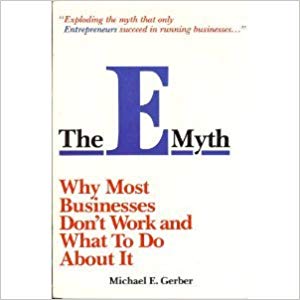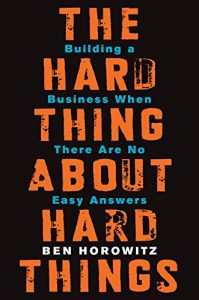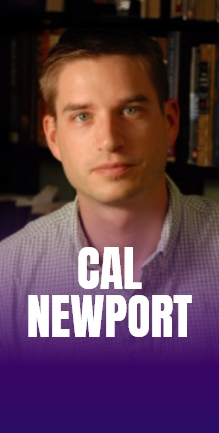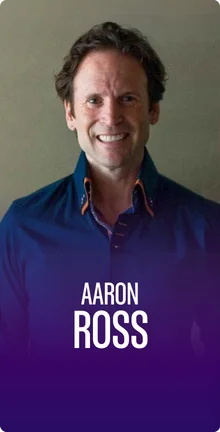I’m really happy to talk to you. This is exciting.
Let’s start by giving a little bit of a backgrounder on Time Doctor because this is a tool that I’ve been using for years now. My team is the ones using it and it’s been very helpful for my team. What I started doing was back when Upwork was called oDesk, I was having remote people starting up on a trial basis and I would see if they were goofing around or not based on the screenshots that would automatically be taken at random times in these ten-minute intervals, then track their number of mouse clicks and the keystrokes on their keyboard. That was fantastic. That gave me insight into whether they were being productive or not. Then oDesk started increasing the price for their cut and it became very painful. I was so happy to find your solution because then I got everybody off of what’s now called Upwork and have them working directly for me as contractors. Then they use the Time Doctor software. Everybody on my team uses Time Doctor. Nobody can get away with not being on it.
I’m happy to hear that. I started it because I had a team in an office in the Philippines and then I decided I wanted to get rid of the office and work from home myself. I thought I’m going to get everyone to work from home. I wanted to create the software that would allow everyone to work from home and I’ll have some comfort with making sure that I know that everyone is productive and working effectively. That started with all of my team in the Philippines. They’re all in one city in Cebu and I was living there for several years. I decided I didn’t want to live there and I didn’t want to have an office there. Once I became remote, then everybody started to pop up in all different places in the Philippines and around the world because I wasn’t restricted to hiring in that one place. It opened up that advantage of hiring in lots of different places and now we have team members in 28 countries, which is pretty crazy. It comes naturally out of hiring from talent and not looking at location. We hired someone from Nigeria and he’s good. I didn’t ever expect to hire someone from Nigeria. It just happens that the person who had the best talent or the person that was the best applicant for the job when I wasn’t looking at the location happened to be from Nigeria. That was interesting.
How do you find somebody in Nigeria or do they find you? How does that happen?
It depends on the job role but for development roles, we post a job in multiple sites, but the main one would be Stack Overflow. It’s a good one. Upwork is another good one that you mentioned. There are lots of different sites that you can post jobs. There are all of these kinds of remote working job sites. There’s Angel.co. There are lots of places and referrals. LinkedIn is another good one. LinkedIn is a global platform so you can post a job anywhere. Although with LinkedIn, you have to select the location so it restricts it. Stack Overflow is, unfortunately, a bit expensive and it’s only for developers but with that one, you can post and you can get people from around the world because you’re saying that the position is remote and it’s a thing now that people are hiring and working from anywhere.
We have a conference as well called Running Remote, which is about how to run that kind of company which is global and it’s fascinating, these massive companies. There’s GitHub, which was bought by Microsoft for $7 billion I think. They’re completely remote. It’s a new way of doing business, which most people haven’t got their head around. Most people do run their business in an office and that’s their way of thinking and they can’t get their head around having everyone completely distributed. It is coming up, especially in the tech world as another way of doing things.
I’ve done both. I’ve had offices with teams of people. Then I feel obligated to go into the office and I’m not as productive. I get bothered by people. If I close my door, I like having my own space. Having an office, I’m in my little ivory tower, especially if I close my door a lot to get work done, then I seem very unapproachable and distant to the team. That’s not good. I leave the door open and then I get bothered all the time by these got-a-minute meetings, “You got a minute?” “I do now because you completely destroyed my flow state.” Attention residue lasts for about 25 minutes according to Cal Newport, who I’ve had on this show. He’s awesome. That was a great episode. He’s the author of Deep Work and So Good They Can’t Ignore You. We talked about Deep Work and attention residue is one of those topics that he covered in the book and in that episode where I interviewed him. Attention residue lasts about 25 minutes.
If you just check your phone, text messages came in or your email or whatever, all it takes is five seconds or whatever and now part of your brain is occupied on that thing for the next twenty to 25 minutes and you just destroyed your flow state. These got-a-minute meetings, they were the death of my productivity. I would just work from home more and more, then that was not good optics. It’s like, “Why should I come in and work full day at the office when the boss doesn’t even come in? This is totally unfair.” There are all kinds of problems with that situation. People in cubicles overhear each other. You couldn’t have a private phone conversation. It doesn’t need to be private, it’s just a conversation with a client walking them through something that you can partially hear while you’re trying to get work done. Then you listen to music to drown it out and the music is music you like and you can sing along with it.
Outsourcing is a new way of doing business which most people haven't got their head around, but it's coming up especially in the tech world. Share on XMost workspaces now have open workspaces and that is not as productive in a lot of cases because you’re not in your own world. It’s not as common now to have your own office because it’s also more expensive to have your own. Everyone to have their own private office is going to be a very expensive office. Usually, people are not working like that and usually, it’s an open plan. Then you’ve got all those interruption issues.
I was reading an article about how much open-plan offices cost businesses money. Facebook, for example, it’s an open plan and it’s insane what it’s costing them in lost productivity. I remember one of the big benefits supposedly of having everybody working in the same office is that you can keep an eye on them and then they’re being kept honest, but it doesn’t work. There’s this one lady that bugged the heck out of me. We had an office in Browns Bay, which is on the north shore of Auckland. It was a beautiful office, a block from the beach and we were working on US clients, big-name brands and so forth. It was a very sought-after place to work. This is the company that I had founded, Netconcepts.
This lady, I could see that she would zip up windows as soon as I would walk up to her because her screen would reflect on the window behind her. She never realized this but every single time I would walk up to her to talk to her, she would zip everything that she was doing, which was a waste of time stuff, Facebook and playing games or whatever. She is essentially stealing from the company. It was rampant. It spreads like a virus because one person sees it, then another person is like, “If they can do it, I can do it too.” One guy next to her would start watching movies while he was coding an HTML. How can you focus on coding and watch a movie on Netflix or whatever at the same exact time? How does that work? It’s frustrating. This is not a great panacea to have an office where everybody has to show up and work, even if you have a smallish team. We had maybe 30 people and you can’t keep tabs on everybody. They’re going to screw around. It’s more effective to have them remote and using a tool like Time Doctor.
It doesn’t mean that keeping tabs is the number one thing. The number one thing is the culture and making sure that you have a culture that is positive and the people are excited and you’re hiring the right people. I’d say number one is hiring the right person and number two is the culture. When you have people that are completely remote, and in some cases we’ve never even met the person, it’s a different situation than your normal office. Literally, we’ve never met in person. That makes that tool useful in that situation because we know that it’s that extra level of knowing that the person is working.
I’ve got team members who I have never met in person. That’s totally fine. It didn’t even occur to me that I’d never met them in person because it feels like I know them. We’re on Skype or Zoom sharing video. That doesn’t feel like I’m missing out. If I didn’t have something like Time Doctor, I would be a lot more paranoid about whether they’re working and to what degree.
I appreciate that. Coming to the benefit of doing all of this, the productivity is there so you’re not getting interrupted. For me, the number one benefit is that you’re hiring from anywhere. You’re increasing the depth of talent. It means if you’re running your business from a small city, you can do it. Normally if you’re running your business from a small city, there’s no way you’re going to get the talent in. If you live in New York City, then there are lots of talent but then you have another problem, which is it’s very expensive. You’re now able to hire anyone anywhere and get that good talent, which is fantastic.
I was especially having this problem within the SEO industry. There are not a lot of top people that are interested in working for somebody else. That makes it very tough. I’ve got a distributed team that I would not have been able to assemble any other way. I wouldn’t be able to get the same quality of people working for me doing SEO for my clients if we were all based in LA.
Where did you find most of your SEO people? What would be the number one location? Is it from the US?
No, my best people at this point are in Canada but I’ve had people from all over, different parts of the world, New Zealand, Australia, UK. Not so much from the Philippines. It’s hard to find people who are cutting edge. They’re doing a lot of old school techniques over there.
The types of skills are different depending on the country that you’re looking at. The Philippines is great for research, great for certain customer support but US, Canada, Australia and New Zealand are great for this SEO higher-level marketing roles. It’s much harder to find that kind of person in the Philippines. For those kinds of high-level SEO and marketing, you need to look in the English-speaking West.
Also, I’ve found that I need to be very specific with what I’m looking for. If I’m dealing with certain countries, I need to put everything down in a checklist. If it’s not in the checklist, then it doesn’t get done. Even if it’s so common sense like, “I need you to build me a car. I need the steering wheel in the front seat, driver’s side.” If I don’t specify the driver’s side, it will show up on the passenger side. It’s all got to go on the checklist or it doesn’t end up getting done right. That’s frustrating but you learn what works and what doesn’t work, depending on the country you’re dealing with and the culture. You’ve got to adapt. What have you found to be the most effective way to get people remote to not miss any common-sense steps? Is it a checklist as a PDF? Is it Process Street?
My honest answer is the best way is to hire the right person in the first place because the process is helpful, but it’s not a panacea. My experience is that I haven’t been able to get a process from most things where you can just plug someone into the process. I find that quite difficult. What I do instead is when I’m hiring, I’m looking at the exact thing that they’re going to do on the job and then I give them tests and trial work that exactly matches that so that they’re able to do it during the test and the trial work. I do have the processes and I’ve got a whole list of checklists, like probably 50 different checklists that we have in the company, but I don’t think they’re necessarily a panacea. There are certain things that you could make it so clear that anybody could do it.

I know that Michael Gerber from The E-Myth talks about that. He’s an amazing proponent of systematizing everything in your business. It does make sense in certain things where you’re doing the same thing over and over. I imagine for your podcast you can do the same process like you’re doing a podcast again and again. When you’re doing some other things that are very variable building a product, the checklist doesn’t work as well. If you’re doing the promotions on emails like we’re promoting our blog articles for example, we do have a checklist and a very fairly clear process but a lot of the best ways to promote are not in the checklist. They’re something that pops up and you talk to this person. I’m a mixed proponent of the checklists. They’re useful but not a panacea.
How do you make sure that you’re hiring the right person? You mentioned trial work. Let’s break this down because I want to make sure that our audience understands what it takes to hire the right person. I created this SEO Hiring Blueprint for hiring SEO people because there are so many horror stories out there of people who hire the wrong company or person. They ended up doing nothing or they get the company penalized in Google. They end up faking you out and producing something of no value like these reports don’t show that they’ve done anything valuable. Let’s take it more generally. What’s your process for making sure that you screen these people at a time? Maybe the job advert has some tricks in them that catch a lot of the people who don’t have much attention to detail. Maybe there was a vetting process that’s quite stringent. Walk us through this.
There are a few keys that I would say are the most important. The first step is getting enough people in the funnel, which means posting in the right places, getting referrals and pretty much posting in every single place. Also, having a remote global job so that you’re then allowing anyone from any way to apply, which greatly increases the number of applicants. That’s the first step is doing that. Getting a whole lot of people in the funnel. We use an applicant tracking software called Breezy, which I can highly recommend for doing that. Everyone comes into this very set process. For example, with the customer support, the first thing that we ask them is a question which they could answer even if they don’t have any knowledge of our product. It’s something like, “Your product is not working. What’s going on? You guys suck.” Something like that. The customer didn’t say anything about the product or what the problem was. Now, what are you going to answer? How are you going to answer them? It is something that probably anyone can answer even if they don’t have knowledge of the product.
You ask them that question. That’s the first thing you do. You don’t have any interview because the interview takes a lot of time. Imagine you’re trying to interview 500 people and in some cases, we get 500 applicants. It’s absolutely a nightmare. You couldn’t do that, so you have a test. You have to have a test which matches the work that they’re doing. We have multiple levels of tests. The first test will be easy and that first test will again match what work they’re doing. It’s something that’s simple to mark and to go through so that if we have 100 applicants, we can look at those 100 tests very quickly and then we can filter down and see if their English is okay. The test could be as simple as you write a couple of sentences just to see if they can do that. You’re going through their paces and you’re increasing the level that they go through with each test, then eventually cumulating in trial work for two weeks.
We usually try to get two or three people on trial at the same time because when you’re hiring remotely, although it’s fantastic, it does have the downside that people can flake out more easily. It’s good to have two people that you’re hiring on a trial basis so that you can then compare and see who’s the most consistent and reliable when they’re doing the actual work. It’s a very long process. It takes a while, but that process is so important to get the right people in the door. That’s how it works. It’s the volume and the tests. These are the key areas, I would say. Formulating a test that exactly matches the work. It’s not some theoretical test. It’s the exact work that they’re going to do in the job. How do you test that? How do you break it down to a small component that they can do? The SEO, I imagine if they’re trying to get a link, it might be like writing an email to try and get a link from this website for example.
What I do first is I require people applying for the job to solve a riddle. That riddle is just a problem-solving riddle that I don’t care if they get the answer right. They do have to follow directions though and put that into their email that they send. If they don’t include anything about the riddle, even if it’s a failed attempt to solve it, they’re automatically disqualified. It doesn’t matter if they’re applying for a VA position or an SEO position or whatever, if they are either unwilling to attempt to solve the riddle I don’t say that it has to be right. I just want them to show their work or whatever. I just say, “Here’s a problem-solving. Solve it and include that in your inquiry.” Many people don’t follow the directions. They blast out the same email they send to everybody else and what a gift because we get to screen those people out so fast without wasting any time. The test that you mentioned that match the person’s work, it makes sense once I can see that they do follow directions and are willing to put a little bit of time into this particular opportunity. Have you tried anything like a riddle or any trick like, “Include in the subject line this or that when you’re sending the email,” and then they don’t do that then they’re automatically disqualified? Anything like that?
Having a remote global job allows anyone from any way to apply, which greatly increases the number of applicants. Share on XWe’ve done that for some job roles. We’ve done that definitely on Upwork before for some jobs. For our salespeople, the way we do it is the first step is a one-minute video where you sell something that you’ve sold before. They produce a one-minute video and it’s very easy to do. That screens a lot of people out like, “I’m not willing to do the video.” If you’re a salesperson and you’ve sold something before, you can always sell it to someone again. That’s easy and it’s only one minute. That screens directly for the thing.
The riddle is okay as an initial step. I wouldn’t rely on that as the only thing because it’s only testing their reliability or their ability to pick something up. If you’re testing a QA or a tester where you need to have somebody who’s very precise and they have a lot of attention to detail, then you’ll want to give them a ten-step process and they have to follow that exactly. That could be an example where you’re testing for the exact skill they need as a QA analyst or a tester. They need to be very precise and very detail-orientated. A salesperson, maybe they don’t need to be detail-orientated. Maybe it’s more important that they have good communication skills.
Do you have any process that you could share with our audience? Let’s say it’s a ten-step process that you give to the QA person that you’re considering hiring.
It is different for each job role. I create a different process for every single role. We have ones that are now set because we’ve done it multiple times like QA, we’ve hired multiple times. It does depend on the role. Do you think there’s one that people would hire a lot for? I imagine perhaps the virtual assistant would be a good one. I haven’t hired a virtual assistant for a while, but I’m going to make one up right on the spot as to what I would do. I would probably get them to do a couple of tasks that are very simple. It might be a research task first, “Research me five places in Sydney that have florists that deliver this kind of flower.” That may or may not be the first step. I’d probably have a smaller step before that, which would be something like, “Tell me one thing that you did before that wasn’t expected from your boss that was above their expectations.” Just ask one simple question and have them answer that one question as the first step.
The second step could be after they answered that and they successfully go through that step, then what is some research they could do that relates to the kind of research? If you were going to get them to do personal assistant stuff like buying flowers, get them to research some flower shops. If you’re going to get them to do a little bit of linking work, then get them to do something that’s task-related to that. I sometimes offered to pay because it’s not that expensive to pay. Even if I’m paying twenty people for two hours of work, it’s still worth it as a hiring cost because it might get them over the hump of, “I don’t know if I want to do another test.” It’s very hard for these guys who are applying, especially the good ones. They may not bought outright to do it. Sometimes I do that as an extra thing. It might cost me money, but it’s worth it to make sure that I’m not excluding someone that is good, but they’ve got a lot of different opportunities they could pursue and they’re not sure if they want to pursue mine.
You can’t put them always through hoops as well. Then the next stage after that might be doing a video of themselves, like a one-minute video, especially if they’re going to have to communicate with clients. I might want to get them to do a video on that Breezy software that I mentioned that we’re using. It has videos on there so that you can do it that way. You can get them to do a video and then upload it to YouTube, which is a general good test of their technical skills because you’d be surprised at how many people were not able to do that. Simply create a video of themselves and upload it to YouTube. It’s a simple task that any admin or virtual assistants should be able to do. If they can’t do that, it’s a good barrier that they lack this basic technical, at least reasonably computer savvy that they can do something like that.
One thing you mentioned that I want to zero in on that is critically important is first before you give them that task or that trial assignment, ask for specific evidence or a specific situation where they’ve solved that problem so that you know that they’ve got work experience in that area like, “Share a time where you got flowers for your boss or for one of your clients. What was the ordering process like? Who did you order it for and what was the outcome and everything?” Always ask for specifics like, “What are your strengths?” “You said that your top strength is attention to detail. Give me a specific instance where your attention to detail saved a ton of money. It saved a project from disaster in one of your clients or one of your past jobs,” and then shut up and wait for them to come up with something. Don’t fill in the empty space while they’re thinking.
That’s also for the interview. It’s great that you write down a series of questions in interviews rather than winging it. It’s not good to wing it in interviews. You should have an actual process or questions that you’re going to ask in the interview.
Is there any resource that people could even pay for that are different kinds of tests for different kinds of roles? You spent all this time figuring out how to test people for different roles whether they’re a VA, quality assurance person, customer service, sales or whatever. Any kind of resource like that or do they have to reinvent the wheel?

We have a couple of those on our blog. For example, for developers, the exact tests that we’ve used and also for QA. We haven’t done it for all kinds of positions. That would be a good resource to put together. I think that’s something that should be done, the exact test that we use.
What do you think about posting job adverts to Craigslist? This is something my team does for me. We choose different cities in the US, typically, college towns that are bigger cities. You have to pay a fee in order to post jobs in the larger cities. Whereas a small town, you probably don’t have a fee. At least the last time I checked there was no fee. There’s a lot more noise in there. I don’t want that. I want to pay the fee and have more quality opportunities for a job seeker. Boston, New York City and Chicago are great. What do you think about that approach?
We haven’t done it, but it’s a great idea. You need to pay as well because Craigslist blocks you if you post in multiple free sites. They may not block you as much if you’re posting in a paid section. They consider the payment as a block for spam, so they don’t block you as much. It’s definitely an interesting one. LinkedIn is possible. LinkedIn is probably more expensive though. Indeed is possible as well. Craigslist would tend to get you a little bit more project the lower cost, people who are starting out as well, which is a good thing depending on the type of role that you’re doing. University students can be great people that you could hire. If you think that’s a good fit, then that makes sense.
What about intern type sites like GenM.co?
We never used those as well. We haven’t hired in the US so much. That’s probably the reason why but all of these are great options, especially for the marketing roles and the SEO. As I mentioned before, we’ve had a lot in developing countries like in the Philippines. We are also hiring in Canada, but you need the right kind of mix because the skill levels are different depending on the country.
How big is your team in the Philippines?
Probably over twenty people.
Is that the biggest team size in all the countries?
Yes, the Philippines and then number two would be Ukraine.
In Ukraine, is that mostly developers?
Yes.
I figured because they were very good over there in Russia. Are you using Stack Overflow to find those people in Ukraine?
It’s a mixture but that’s probably the number one source, the Stack Overflow. It’s a great source. There are local sites where we hired a recruiter in Ukraine. We’ve tried that. We try multiple angles because it is hard. Even if you’re hiring remotely, it is hard to find that high-skilled person. You need to try multiple angles and get as many people in the door as you can.
I’ve tried recruiters. I had great success when I first moved to New Zealand. I got this crazy idea like I’m going to go move to New Zealand and I applied for residency. I’d never even been there and this was back in 1999. I got in and then I convinced my wife at the time and my kids, “Let’s move halfway around the world.” I needed to get off the ground running with a team very quickly because we had US-based clients like Birds Eye and big brands that were relying on us. I didn’t want to have to manage a big-ish team. I have ten people in Madison, Wisconsin. I scaled down that team to a skeleton team, then I immediately started hiring as soon as I landed in New Zealand. We got this great recruiter who was very expensive but totally worth it. We had eight people within three months, including a general manager who was incredible and stayed with us for ten years. He was amazing. It was a real godsend. I wouldn’t have been able to do that, but we spent tens and tens of thousands of dollars on that recruiter for all those eight roles.
What matters more is getting top priorities done. Don't do email first thing in the day. Share on XNow we use Virtual Staff Finder in the Philippines and it’s only $500, but you get what you paid for. A lot of times we don’t get candidates that we want to hire from the three that they give us. Then they’ll give us another three and if we’re not happy with any of those six, then now we have to pay again. We’ve had that multiple times where we didn’t like any of the six that they do the initial interview. The person doesn’t even show up for the interview with me or they’re fifteen minutes late. They’ve made it through to the second interview, which was me. They got interviewed first by Virtual Staff Finder. They got interviewed by a head VA as our first interview and then she was fifteen minutes late for the interview with me. She’s out. That’s inexcusable. Her excuse was, “I was here early ready for our call and then I went to the restroom and then I lost track of time.” That’s pretty lame.
Is this somebody in the Philippines that you’re hiring?
Yeah, for that particular role. We were looking for a VA to handle stuff like social media and podcast production stuff.
The Philippines, OnlineJobs is a good website to look at as well as Upwork is a good one as well.
We’ve tried both and that’s a lot harder because with Upwork, especially I found with OnlineJobs, we would post ads and we’d also do searches in the database for people who looked like they would be good candidates for us rather than solely relying on people contacting us from our job. It burned a lot of hours trying to find people. We just wanted to hire through recruiters and have them do the hard work. We have some great people in the Philippines. We’ve got two people that are working for us full-time and they’re great and I want two more. It just seems like we keep banging our heads against the wall trying to do this. Is there some secret thing that I missed or a particular recruiting firm that I should have used instead?
We haven’t succeeded with a recruiting firm at this stage. We have our own internal team of three people that are HR and recruitment. We’re processing everything very carefully, all of the applicants that we get. Honestly, it’s a fight with every single hire. Some are easier than others. For hiring a researcher it’s easier, but if we’re hiring even a QA analyst, I’ve got a test which is a very hard test. Most QAs will not pass it. Most of them fail and they don’t succeed at this test. You mentioned before about reaching out. That’s critical on Upwork and other sites. You need to not just post the job and hope that you’ll get the applicants because the applicant is going to be the ones that are wanting and desperately want the job and wanted to apply for it. You need to reach out to as many as possible.
In Upwork, we message the maximum number of people and that’s important as well. The way that platform works is that the people on the platform are only able to apply to a certain number of jobs. If you reach out to them, they’re much more likely to engage with you as well. It’s a comprehensive process. If you don’t have your own team, it is more difficult in the beginning. Referrals surprisingly is one of the top sources for us. We’ve done an analysis of all of the sources that we’ve got for our existing team and referrals is a top source. Sometimes you’re missing that. Your two existing good people in the Philippines, you might be surprised to know that they have a friend. We offer a $500 referral bonus to anyone who refers a friend and they get a job and they last more than three months. That’s another option as well that if you dig into those people and say, “Do you know anyone? Do they know anyone? Did they have friends of friends that you can post on Facebook?” You may have done that before, but referrals are often better.
We tried a lot. How many people do you message when you do this on Upwork?
The maximum until they say you can’t message more, which is something like 50 a day or twenty a day. I’m not sure. It’s somewhere between twenty and 50 a day and then every day, we keep messaging more.
Do you have somebody who’s dedicated to finding new people or is a VA doing this who is also managing your travel and your inbox?
It’s three people that are in HR and recruitment. One is full-time recruitment, the other two are part HR, part recruitment.

How do you gamify this so that people don’t feel like, “Here’s another test I got to go through, another hoop I’ve got to jump through for this possibility of getting a job?” People get jaded. They feel like, “I’m wasting my time yet again doing this test.”
That’s really an important thing as well. You’re talking about a one-hour test. It’s already getting to the margin where they might not do it and you might exclude somebody because it’s a long test. If you’re talking about a one-question test, we try to make the first question super easy. That’s one question. Can’t you answer one question? Also if your salary is good, you can be offering that in the beginning. If the salary is good for that region, then that’s an incentive like, “I want that salary.” If you put the first question as easy and it’s obvious that it’s an easy question, then they’ll answer that. Then they can be engaged and then they’re going to do the next question. If it’s over an hour, we will offer to pay for their time. Sometimes we don’t necessarily offer to pay if the test is going to be one hour, but even for one hour, it’s not necessarily a bad idea to pay as well.
I’m this ninja searcher. I’m good at finding stuff in Google like confidential business plans and Forrester Research reports and stuff like that. When I get a good outreach email to my inbox, if it made it through to my read review or action folders by my team and it’s like this was a good outreach. They have a name that sounds Filipino, I will google them, I will find them on Upwork. I will look at their profile, I’ll find some jobs that they had taken. Then I find all sorts of amazing competitive intel. For example, this one podcaster, he put this incredible job advert on Upwork where he would incentivize the person to find him podcast guest bookings. He wants to be a guest on other people’s podcasts. He put this job advert that incentivizes the person to get successful bookings. He would pay not just a flat hourly fee, but a bonus of maybe $20 or maybe even $50 for each successful podcast booking. He did the math and he said, “You could make $1,500 a month if you successfully get me on three podcasts a week” or whatever. I was like, “That’s serious money,” especially in the Philippines. That is quite a high compensation. Have you reverse-engineered any of that stuff like I’m describing? Using other people’s Upwork job adverts as an inspiration for your own or finding people who seemed good on Upwork or similar platforms because you find them out there in the wild for whatever reason like they’ve pitched you on their client being on your podcast.
We haven’t done it that way. The way we’ve done it more is through a massive volume method, which is that the assessment method that we have is able to handle hundreds and hundreds of people because the first test is very easy. The software we use is automated. Everything is fairly easy, plus you do need to have the VA to do it with the volume that we’re doing. The recruitment person in the Philippines is doing it for us. We haven’t gone to a more individual one-on-one kind of thing. We have maybe done it for let’s say we’re looking for a conversion optimization person. What we’ve done for that is researched on the web conversion optimization consultants. We might look for a consultant rather than somebody who already has their own business and then reach out to them and say, “Is this going to be a fit?” We try to get a match that way. For the Upwork, we don’t have the time to do individual things because we got 1,000 applicants or hundreds of people that we’re reaching out to. We’re just going through the same process that we have for everyone. That’s what we’re mostly doing.
Have you considered having a microsite or a quiz or an assessment tool for people in particular industries or areas of specialization like conversion rate optimization like, “Take this CRO quiz and find out how much of a CRO ninja you are?” That feeds people into a funnel, which is for hiring them to work for you.
That’s what we do but we create a quiz and we started with only one question. The first stage will be just one question because if you have twenty questions, they’ll be like, “I don’t know if I want to do a twenty-question quiz.” If you ask somebody one question about CRO for example or SEO, “You can’t answer one question, come on.” We do that question through our applicant tracking software, the Breezy, but you can use other kinds of software as well. There’s a software called Hundred5, which is pretty good for generating quizzes and then automatically selecting the people based on that. That’s a good quiz generation software. We use it for development roles for getting real-life development and getting them to do it and then doing a programming test. These tests are usually more than one hour. They’re not a short one.
We use something called HackerRank. It tests their real programming skills. It’s not multiple-choice. I don’t believe in multiple-choice so much. I believe in the real-life test. That’s the problem with these other quizzes. It’s okay for maybe one or two questions just to filter a few people, but a multiple-choice doesn’t reflect an actual job. The actual job is doing some work like writing an email or doing some programming or doing some QA. You can’t do that in a test because every answer is slightly different and there’s no automated way to answer it. For the programming, for the HackerRank, there are automated answers. They’ve figured that out, how to get a non-developer to be able to give an extremely hard test. On HackerRank, we give people these tests that it’s hard to even understand the question. That’s how hard it is like, “What? I don’t even understand what he’s talking about.” You’re testing someone to see if they’re very intelligent and if they can figure out an extremely difficult problem using their development skills.
Is that something I could find on HackerRank as an example of what you’re talking about?
Even Facebook used HackerRank previously. There are other platforms as well that keep programming tests, but it’s a way to keep programming algorithmic tests, not multiple choice. I’m not a big believer in multiple-choice.
I still do it. I created, for example, a featured snippet SEO multiple-choice test and that was published on Search Engine Land. I was thinking I should repurpose this and make it more engaging and interactive than what they’ve done on Search Engine Land because it’s not that sexy, the software that they’re using for that. Then use that as a funnel of people who get a lot of the questions right. I could ask them if they’re interested in working with me and learning from me and being a contractor for me. That’s an idea that is sitting in my to-do list. Let’s switch to lightning round mode here. What would be your favorite book that you would want to recommend to our audience?

I read The Hard Thing About Hard Things, which was an amazing inspirational story about creating a business and going through obstacles. I like Getting Things Done by David Allen as a basic book on productivity. There are lots of things that I’ve read. They all blend into each other after a while because I’ve read hundreds and hundreds of books, but those are the two that come to mind. I’d love to share also with the audience about some productivity techniques that I’ve done that have improved my productivity even after I’ve been for years working on productivity techniques. I’ve listened to so many productivity podcasts and I’ve read a whole lot of stuff. I even wrote my own book on productivity. I didn’t go anywhere with it. I owned the website TimeManagement.com, also not doing anything with that. I got into productivity. I did all of these things.
There are just some tweaks that were missing and the way that I do it now is that I have my list of the top things for the day. I have my bucket list and every new task goes in there. If I have a new task, I think about it. I write it down into that general list, but then when I’m working on something I select only five. I am disciplined about only selecting five. That makes sure that that list doesn’t keep accumulating and get larger and I never get them done. I only select five things and I’m selecting the five that are going to have the most impact. That was working. Once I do the five, then I take them off and then I get another five. I don’t do it at the end of each day. I don’t do it at the beginning of each day because that five might take me two days, it might take me one day, it doesn’t matter as much.
What matters more is that I’m getting those top priorities done. Also, not doing email in the first thing of the day. This is a standard productivity thing. Don’t do email first thing in the day. There are other people’s priorities. I’m sure your audience probably heard that before, but are you actually doing it? The one little refinement that I added to it was that I’ve got those five, but then sometimes I’m not working on the top priority because I end up picking five things. Maybe they’re important, but are they really important? I added to that a quarterly priority. I have a quarterly rock or thing that I’m trying to move for the quarter. One of those five has to be related to that quarterly rock. It could be, for me, I’m moving the technology stack and then getting people motivated about the direction that we’re going in.
If my quarterly rock is getting people motivated about the direction and getting people engaged about the direction, one of my tasks everyday has to be related to that. I select one task related to that and then the other four is from my general list of all of the other tasks that I select from. When I’ve done that combination, it started to work much better because I’m at least forcing myself to focus on that important longer-term thing when I’m selecting the task for the top five lists. The top five and constraining it to the five is also good because it makes sure that I don’t get scattered and I don’t end up with a list of twenty things and only do ten of them and I’m overwhelmed. What often happens for a lot of people is you’ve got the to-do list now and then things keep going up and up and you never get the important things done. That’s a few refinements that I’ve had, which took me years of improving to get to that point.
Why five and not let’s say three? I do these three absolutes every morning to figure out what are the three things that I’m going to make sure I do. I don’t make them onerous. I make at least two of them pretty easy to accomplish like make a certain phone call or whatever that’s going to move my business forward or move an order that’s urgent. If it’s five or longer, that feels a little too daunting for me personally.
That’s a good idea as well. For a lot of people, three might be better than five. I totally agree. For me, I would get through the three too often. I’ll just keep recycling the list. I might get fifteen or twenty tasks in a day. If I did three, I just keep on recycling it too often. That’s why I do the five. If you’re only talking about the key tasks and that’s a list of key tasks, that’s okay. I’m talking about all tasks and at least one is from my quarterly. You can’t always be doing every single task is the most critical things. You might have to do your tax return and that’s one of your tasks, but you’re making sure that at least some of them, the critical ones are moving you forward in the direction that you want to go. Your tax returns are probably not that, but you still need to do it.
I’m curious if you’ve heard of this approach that Warren Buffett is associated with. It supposedly said that you come up with your top 25 projects or goals and then you prioritize them. Then cross out all the lower twenty and only focus on the top five until those are completed. You’re not allowed to work on the other twenty goals. Have you heard this before?
No, I haven’t heard of that one. That’s pretty interesting.
I would have a hard time with that. I don’t want to just park a bunch of amazing things until I’ve finished the five that were the most important.
If you were to say those five have to be part of your daily routine and then if you get time, you get to the other twenty, maybe that’s okay. I agree with the general concept that you are focusing on the top five rather than the bottom twenty.
Did you write a blog post or anything describing this process, your top five list?
No, because that’s something that I’ve done and so I haven’t written a blog post yet.
The number one benefit of going remote is that you're hiring from anywhere. You're increasing the depth of talent. Share on XWhy don’t you commit to that while we’re on the show? It will be called a forcing function as Aaron Ross calls it. We talked about that like if you announced that you’re going to run the LA Marathon, that’s a lot different than just quietly joining the gym. The first one is the forcing function. Do you want to commit to writing a blog post?
Sure, I can do that.
Thank you for that commitment. That’s awesome. I know you’ve got this conference coming up, Running Remote and you do it every year. Tell us a little bit about what this conference entails and why should somebody attend.
This is about getting the best leaders in the planet who run remote businesses. It’s talking about how to run the business. It’s not so much for the team members, although it can be for HR and high-level team members, but it’s about how to run a remote business. We have companies, the big ones like the GitHub, which has thousands of staff and it’s a billion-dollar company, and the smaller companies that have remote teams of ten or 50 people that are working remotely. It’s how to put it all together and how to make that work. These people who are very successful are speaking on how to make a remote business works. It’s all about the strategies and techniques around that. It’s really a movement now because remote work or distributed work is becoming more popular that people need to still understand how to do it effectively. That’s what the conference is all about. The place is in Bali, end of June, RunningRemote.com and there are discounted tickets in there before the event. It’s a great location to go to as a remote event as well to go to Bali.
I’ve never been to Bali but it’s on my list. Who was your favorite speaker from 2018?
We had Dominic from Atlassian. I’m not sure if you’ve heard of Atlassian but they do Jira, which is a project management tool. It’s a billion-dollar company as well. He was very positive. We also had a lady from GitHub. She was good, but a number of small speakers as well that were great. They were very inspirational speakers about how to make it work.
For Time Doctor, if somebody wants to sign up and get their team on that, where should they go?
Just go to TimeDoctor.com. If you want to contact me, you can do that through the Contact page on Time Doctor. That would probably be the easiest that will get to me.
Thank you so much, Rob. This was a fun and insightful and informational. Hopefully, our audience will take action on this and apply these best practices and build up their team and screen candidates and not end up wasting their time with bad hires. Be sure to also check out the Michael Gerber episode because he was mentioned in this episode by Rob. He’s got an amazing book called The E-Myth and it was a great episode. We’ll catch you in the next episode.
Links and Resources
- LinkedIn – Rob Rawson
- Twitter – Rob Rawson
- Time Doctor
- Time Doctor Contact Page
- Deep Work
- So Good They Can’t Ignore You
- The E-Myth
- The Hard Thing About Hard Things
- Getting Things Done
- Cal Newport – previous episode
- Aaron Ross – previous episode
- Michael Gerber – previous episode
- Upwork
- Stack Overflow
- Angel.co
- Running Remote
- GitHub
- Netconcepts
- Process Street
- SEO Hiring Blueprint
- Breezy
- Craigslist
- Indeed
- GenM.co
- Virtual Staff Finder
- OnlineJobs
- Hundred5
- HackerRank
- Search Engine Land
- TimeManagement.com
- Atlassian
- Complete Guide to Hiring a Customer Support Person in the Philippines
- The Definitive Guide on How to Hire an Offshore Development Team
- 2018 Manual Tester Test











